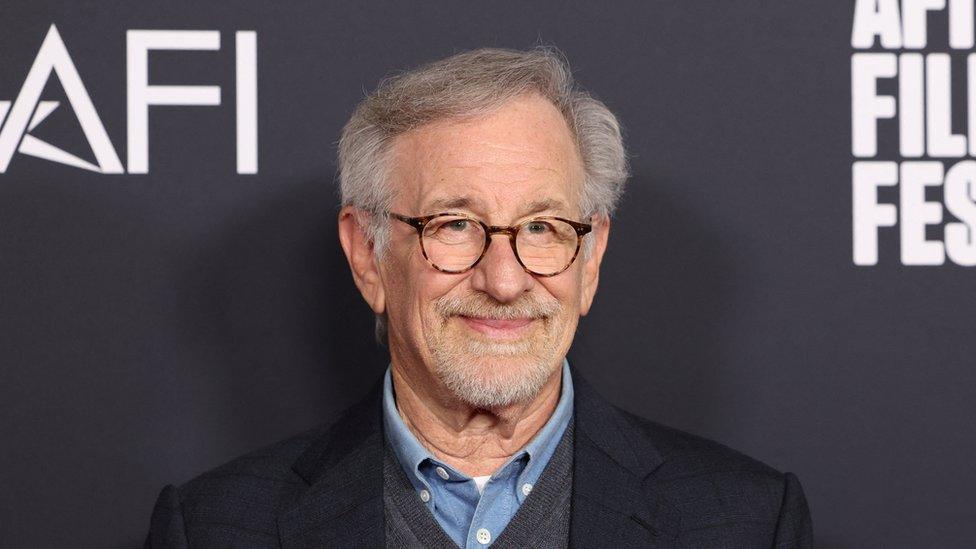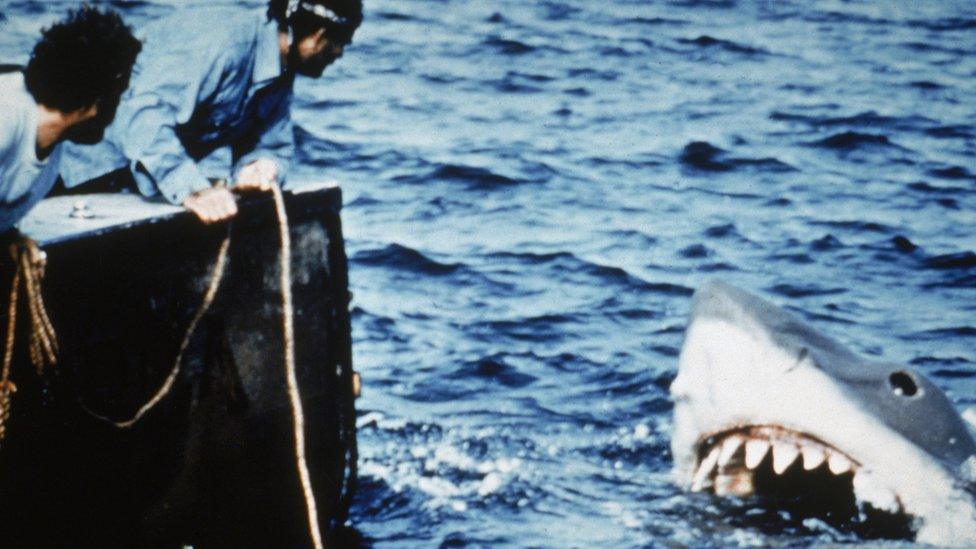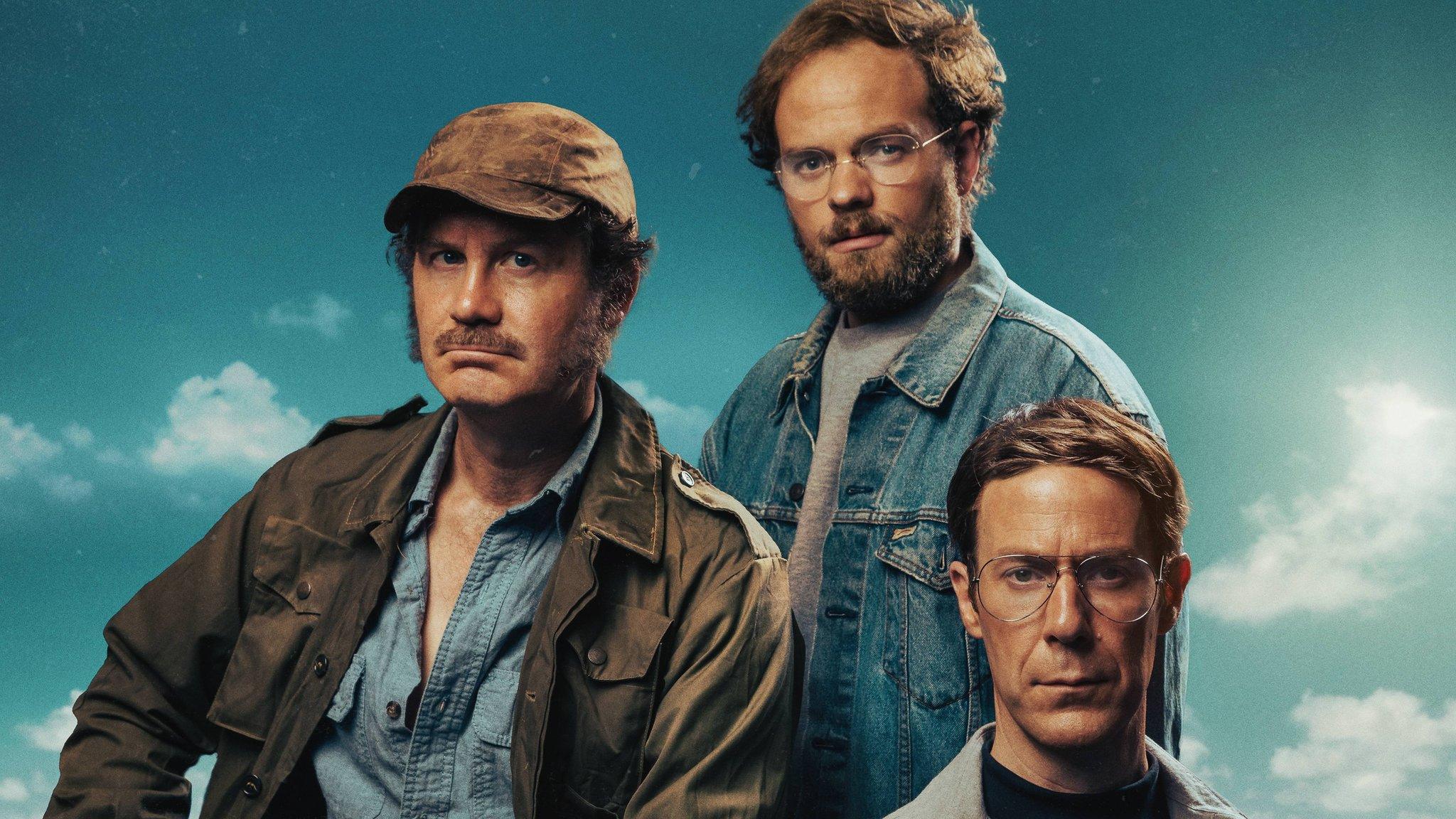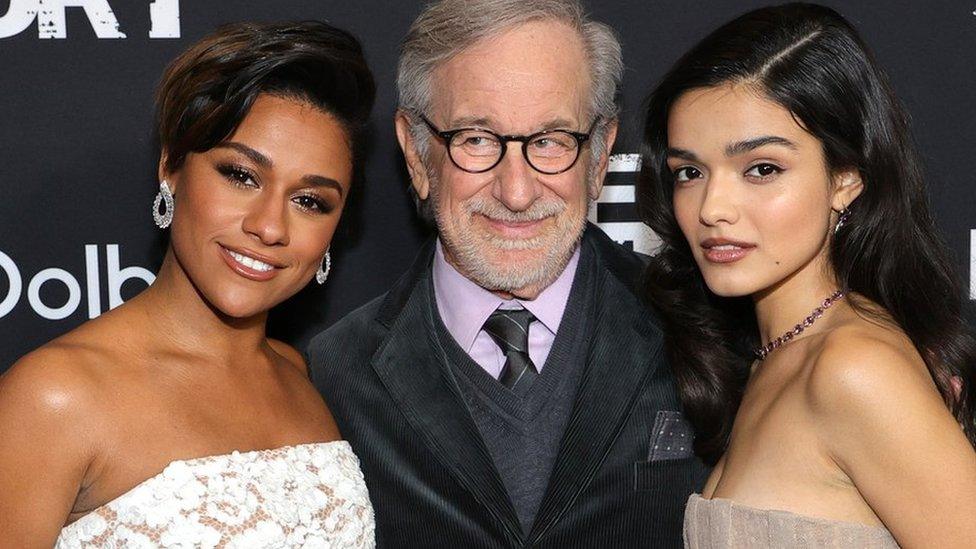Steven Spielberg regrets decimation of shark population after Jaws
- Published

Director Steven Spielberg has said he "truly regrets" the decimation of the shark population following the success of the Oscar-winning film Jaws.
He told BBC Radio 4's Desert Island Discs he fears sharks are "mad" at him for "the feeding frenzy of crazy sword fishermen that happened after 1975".
The film has been blamed for misrepresenting great whites and leading to trophy hunting in the US.
Spielberg also discussed his childhood and new film in the programme.
The 75-year-old American is known for many Hollywood blockbusters including E.T., Schindler's List and Jurassic Park.
Asked how he felt about the sea around his desert island being inhabited by sharks, Spielberg told the programme: "That's one of the things I still fear."
Clarifying it was not a fear of being eaten, the director said the impact to the shark population is something "I truly and to this day regret".
The 1975 film Jaws tells the story of a great white shark that attacks a US seaside town, which influenced a rise in sports fishing across America. Research has suggested the number of large sharks fell along the eastern seaboard of North America in the years following its release.
The songs Somewhere from West Side Story, Frank Sinatra's Come Fly With Me and his daughter's song Cool Hand were among the eight records he selected.
Spielberg also discussed his new semi-autobiographical film, The Fabelmans - which follows the story of his childhood and introduction to filmmaking.
He told presenter Lauren Laverne that a film based on his own story sent his fear levels "through the roof".
"I'm a private person that's going public about and I can't hide behind somebody else's authorship or a book or a genre or American history."
The director said he first thought the project would be the "most self-indulgent thing I've ever asked people to accompany me through" - describing it as "$40m of therapy".
He said he was "answering a need" in making the film, but admitted the biggest struggle was probably "not to get emotional" while making it.
The Fabelmans, which has already picked up nominations at the 2023 Golden Globes and Critics Choice Awards, stars Paul Dano and Michelle Williams.

Jaws has been described as a turning point in the public's perception of sharks
Asked by Laverne about how he started making films, Spielberg said his first attempt was a Western shot on one camera with no editing software at the age of 10.
After showing it to his scout group, he said: "I got bitten by this bug and that was it."
Discussing his time at school, Spielberg said his "only ticket" to popularity was making small movies and recollected getting the captain of the football team to dedicate a whole Saturday to star in a film.
"In a way it was being able to say action to somebody who wouldn't talk to me at school but would obey the word action - [and that] was kind of empowering."
Speaking generally about being a filmmaker, Spielberg said it was not his role to "manipulate" the audience, but admitted doing it in Jaws and in his 1982 supernatural horror film Poltergeist.
Spielberg also touched on Schindler's List, saying when he was initially approached to do the film in 1982 he was not ready "emotionally" or as a filmmaker.
He also chose to take the book, The Grapes of Wrath, and his favourite camera to the deserted island.
The full interview on Desert Island Discs will air on BBC Radio 4 and BBC Sounds at 11:15 GMT on Sunday.
Related topics
- Published6 October 2021

- Published3 December 2021
